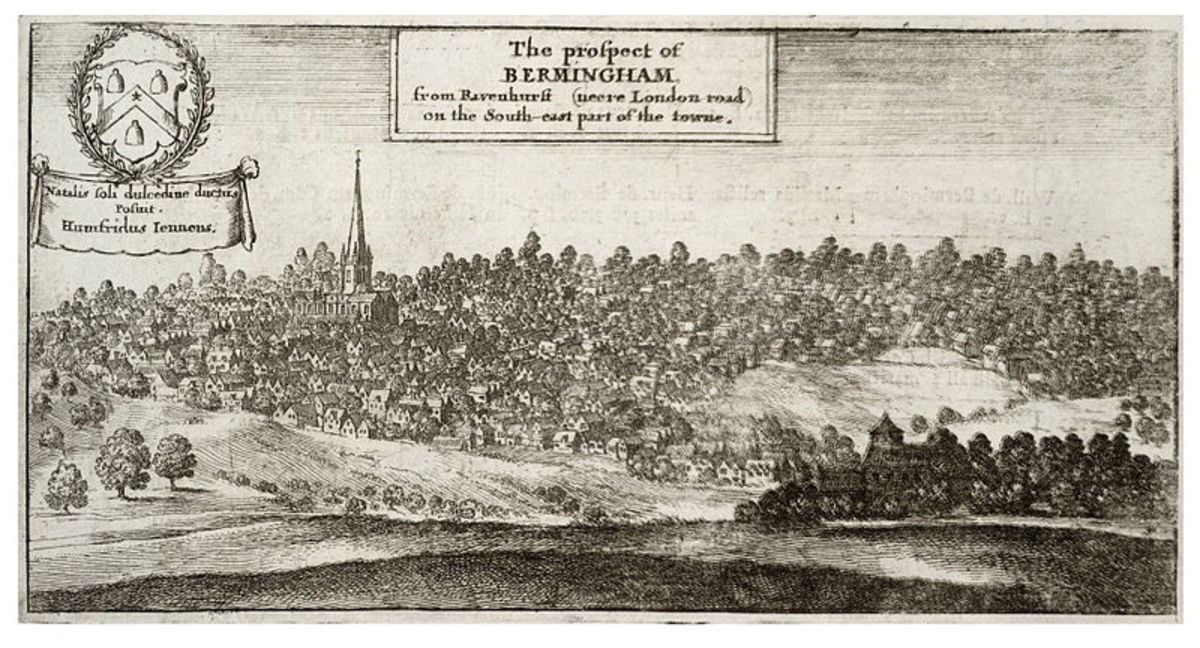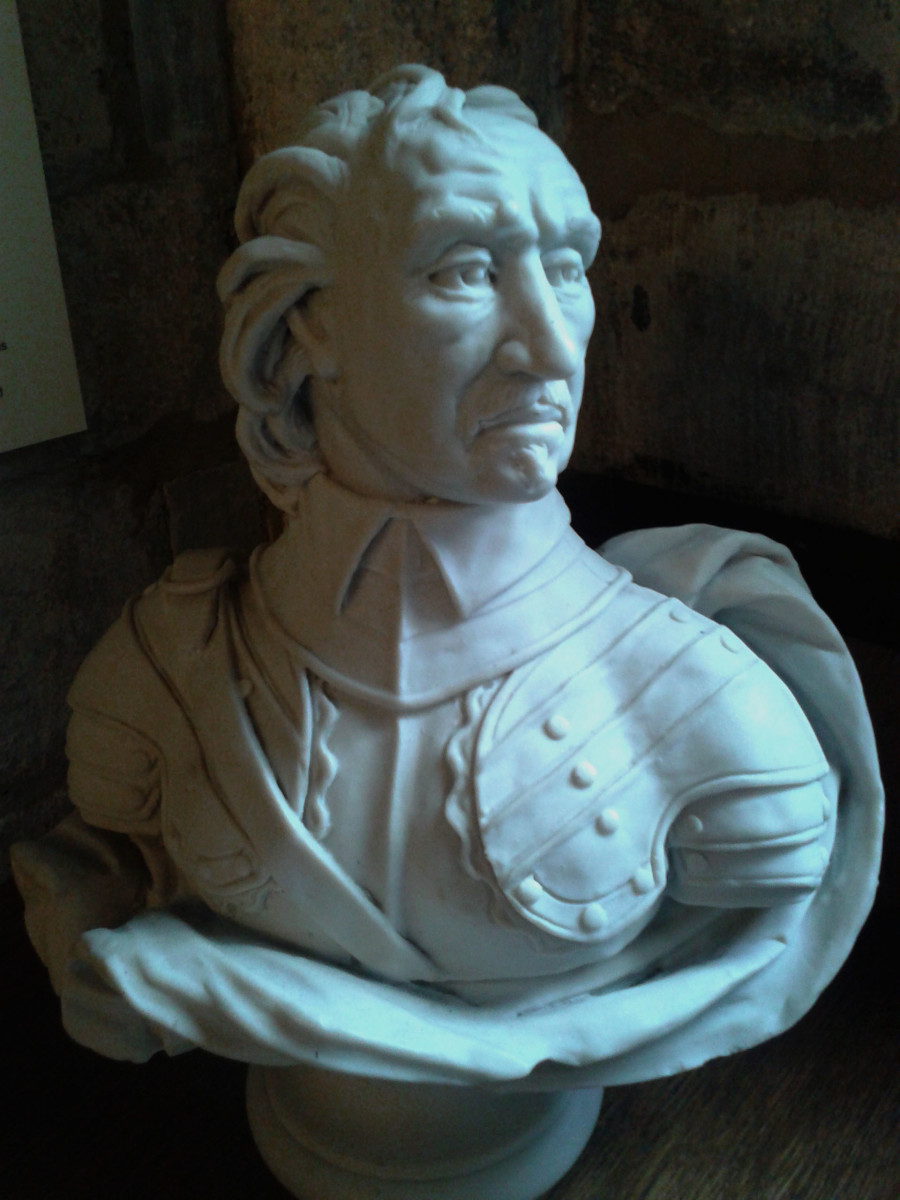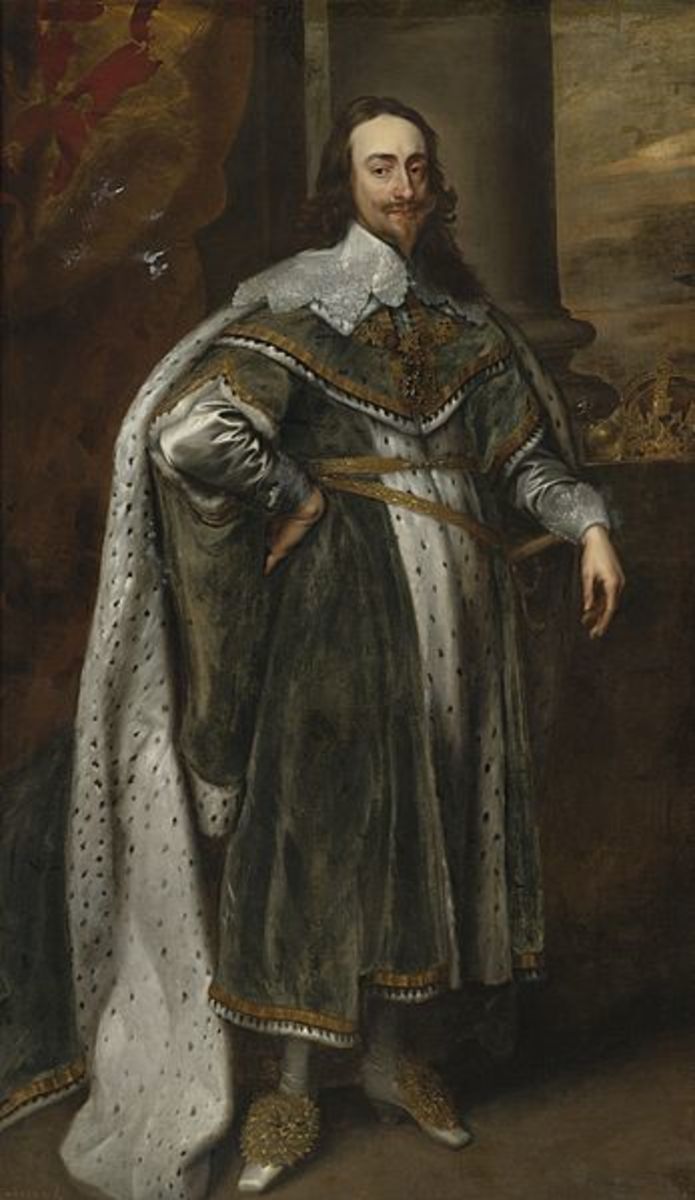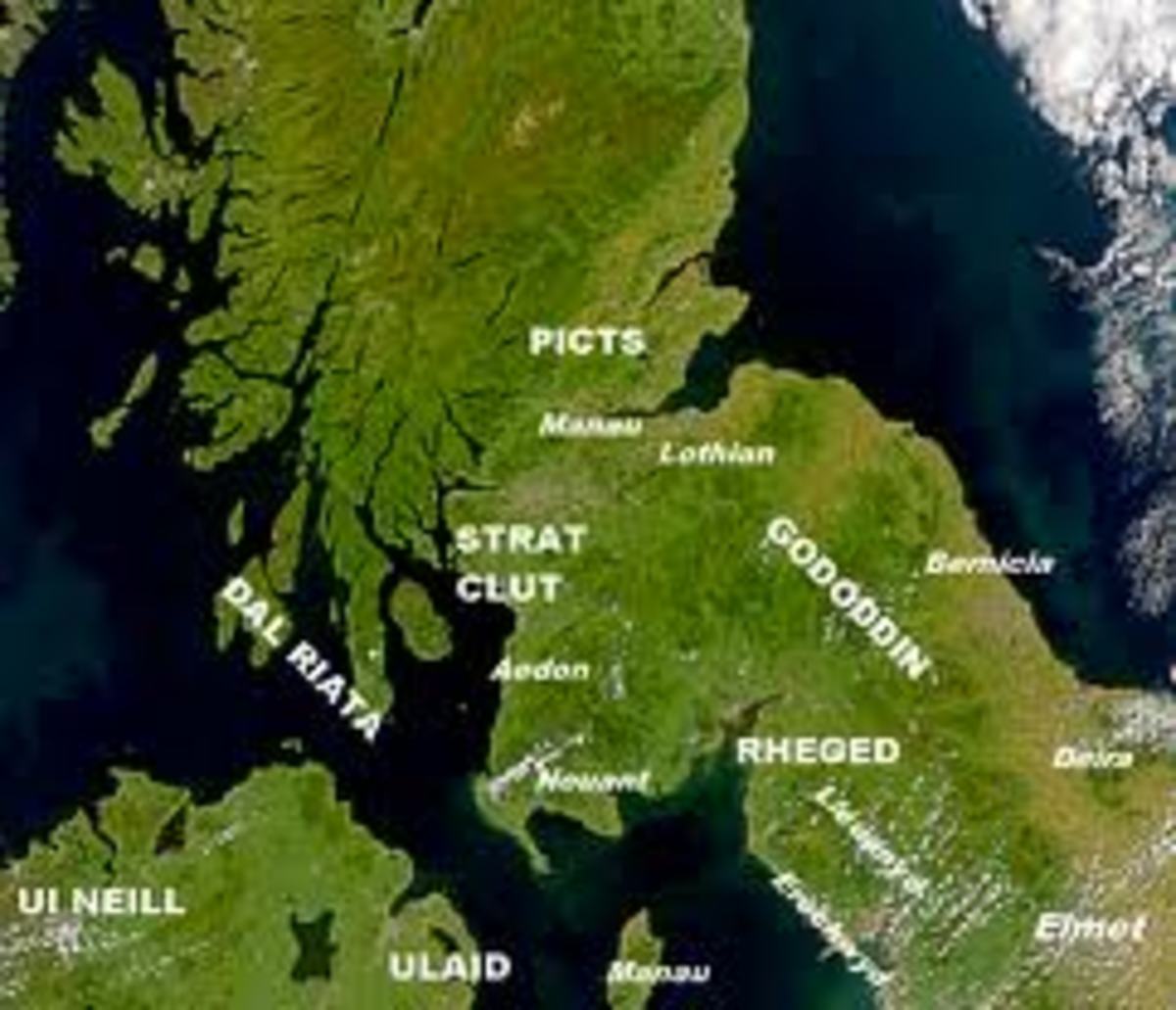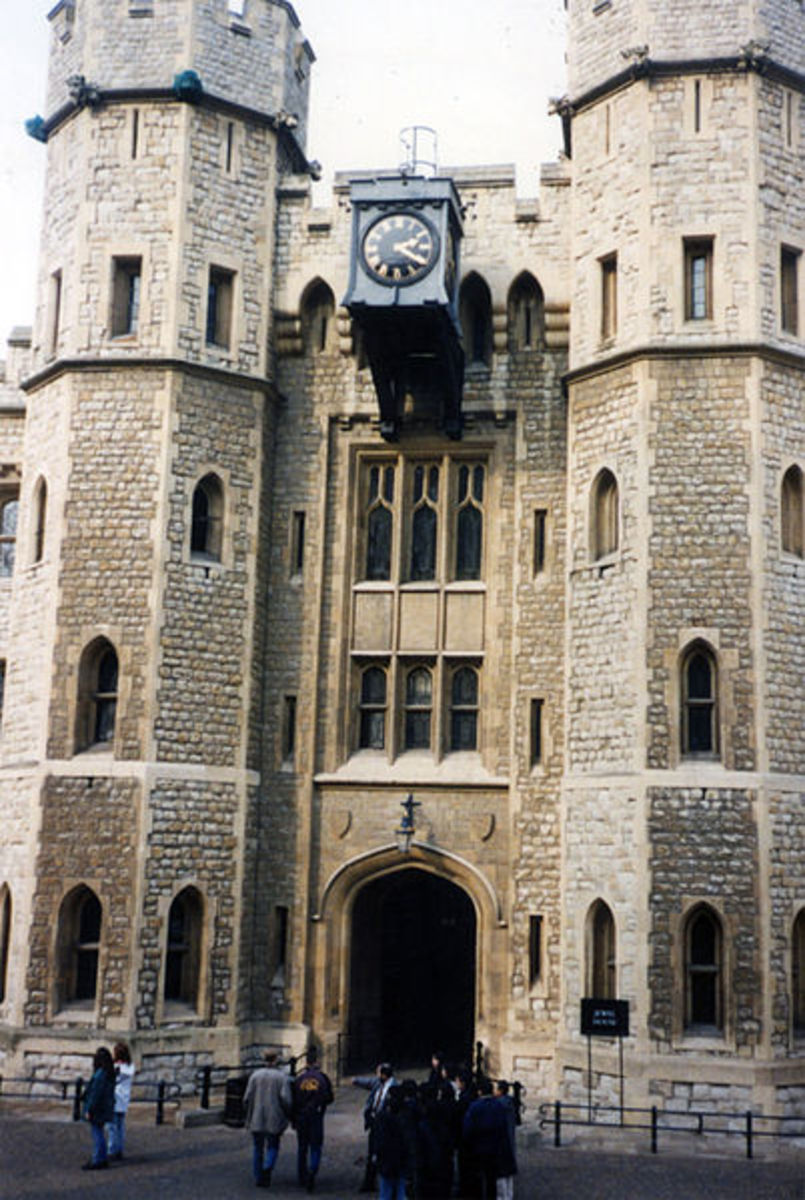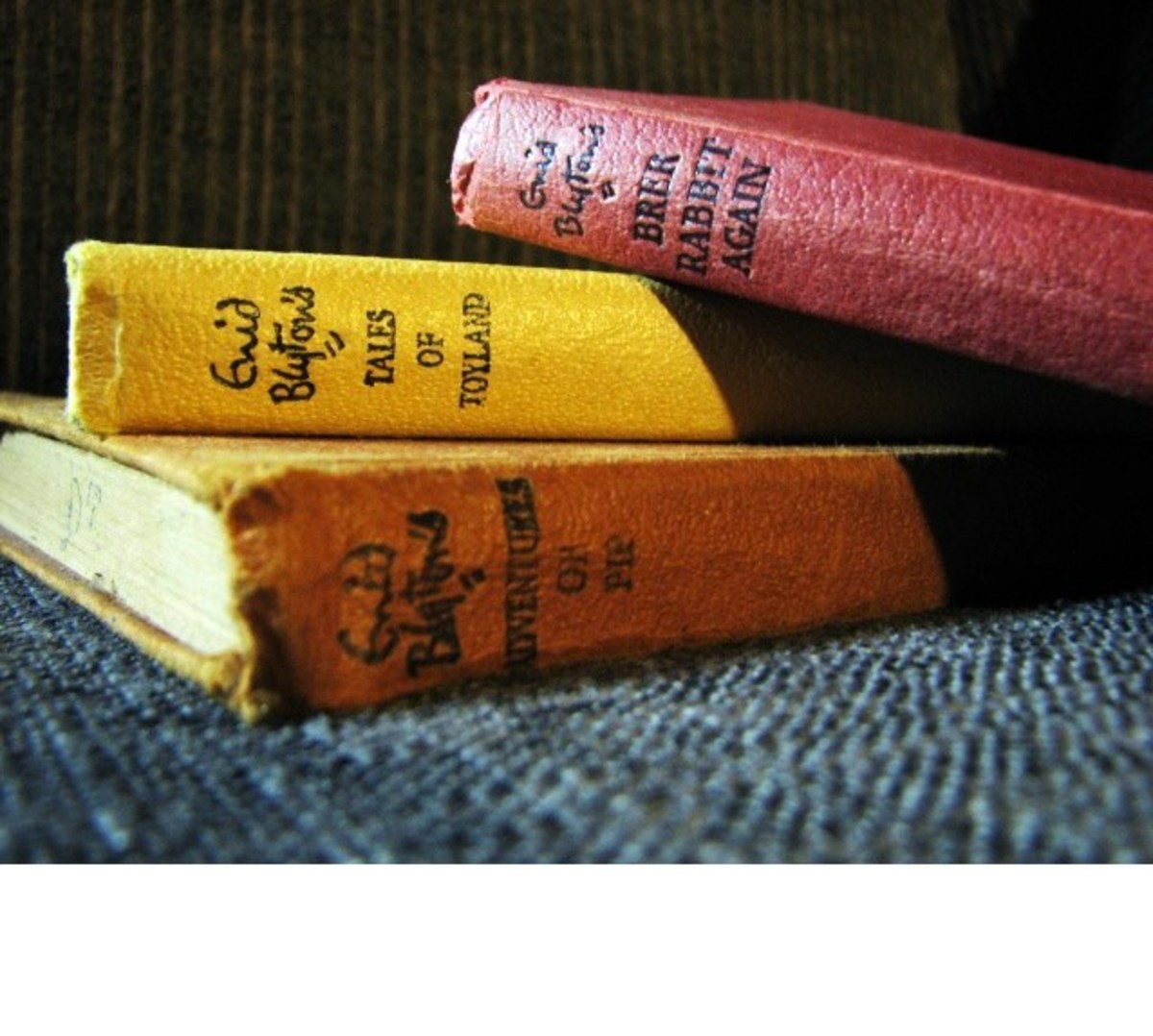English Civil War
King Charles 1st
The first of the English Civil Wars was between the years of 1642 and 1646 when King Charles 1st and his Parliament finally came to blows, when all else had failed. King Charles dissolved Parliament on a number of occasions and only had them reform when he was short of money to fight his wars with Scotland and France.
Unrest
Charles 1st was crowned in 1625 following the death of his father, James 1st. His father had taught him that Kings could do what they wished and were only answerable to God. Charles did not believe that only parliament could pass laws and grant money to the crown. He maintained that if Parliament refused to do what he wanted then he could do without them. His arrogance took the country into Civil War, and caused his own downfall.
Firstly he married Princess Henrietta Maria of France, a Catholic. Parliament were against the marriage as they did not want to see a return to Catholicism. They believed that a Catholic Queen would raise her children in the Catholic faith.
Protestants were upset when Charles married a catholic. They were more upset when Charles, together with Archbishop Laud, began making changes to the Church of England. They ordered that churches had to be decorated once again and that sermons should not be confined to the Bible. They introduced a new English Prayer Book.
Charles steadfastly refused to listen to the advice of his Parliament and instead he appointed the Duke of Buckingham as his main advisor.
Parliaments in those days did not have a very permanent role in the English system of government. They were used by the monarch as a temporary advisory committee. The King had them meet whenever the Crown required additional tax money, and they were subject to dissolution by the King at any time. Responsibility for collecting the taxes was down to the local gentry and the English kings needed the help of this group of nobles to gather the revenue. If the gentry refused to collect the King's taxes, the Crown would have no practical means with which to compel them. The Parliament allowed representatives of the gentry to meet, discuss and send proposals to the king in the form of Bills. These representatives did not, however, have any means of forcing their will upon the king. All they could do was to withhold the finances which he needed to execute his plans.
Parliament hated Buckingham because of the power he had over the king. Buckingham had been responsible for taking England to war with Spain in 1623 and parliament used this to bring a charge of treason against him.
The King dismissed Parliament and threw out the charges against Buckingham. In 1627 Buckingham led a campaign into France and the English army was badly defeated. In 1628 while he was planning another invasion of France, Buckingham was assassinated.
With no Parliament to guide him, Charles began to have money troubles. He had to reinstate Parliament and taxes were raised. In the new Parliament there was a member called Oliver Cromwell, later to play an important role in the civil war. Charles did not call parliament again for nearly eleven years.
People who lived on the coasts of England had always had to pay an extra tax for the defence of the coastline. It was called the Ship Money. Charles decided that everyone would now pay the ship money, even those living inland.

Civil War
The Scots were enraged when Charles demanded that the new English Prayer Book be used in Scottish Churches. Many of the Scots were Puritans, an extreme branch of Protestantism, and there were riots in Scotland against the new service.
In 1639 Charles began to raise an army to fight the Scots and to force them into submission. Without the experience of a Parliament behind him he was failing. So he reinstated Parliament again. In 1640 the English army marched against Scotland. The Scots beat them soundly and Charles had to pay Scotland a lot of money in compensation. The treasury was already in deep financial trouble so taxes had to be raised again. People refused to pay the increased taxes and many were jailed. The country was set against Charles and his harsh rule.
As Parliament had been dismissed from office for eleven years, the new parliament was determined to make the most of being back in office. In late1641 parliament presented the King with a list of grievances called the Grand Remonstrance. It demanded that the power of bishops be reduced and for Charles' councillors to be men appointed by parliament. In January 1642 Charles made the most foolish move of his reign. He burst into the Houses of Parliament with 400 soldiers and demanded that the leading Members be arrested. The Members he wanted had already been warned, though, and they had escaped to safety. Charles and Parliament could not see eye to eye and neither side was willing to back down over the principles that they held. War was inevitable. The whole country divided into those who supported the king and those who supported Parliament, classic ingredients for civil war.
There were only three major battles in the English Civil War – Edge Hill (1642) Marston Moor (1644) and Naseby (1645).
Part 2 of the civil wars


